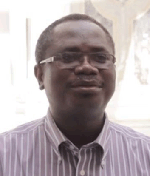France
Published on Tue, 2018-11-06 00:00
In France, a High Level Steering Committee for the implementation of the SDGs held its first meeting in April 2018 as a forum to debate and collectively build, with public and private actors, a ‘roadmap’ to be issued in the fall of 2019.This move was applauded by the ATD Fourth World Movement for being inclusive, but also criticized as “coming late”. ATD Fourth World finds “very little effort to synergize the various objectives, and "not a major concern" for poverty in France. The Movement hopes “that the enforcement of each SDG reaches the poorest, on the national territory as well as in the international development cooperation by France” and it campaigns in particular on the issue of unemployment (currently 9 percent in France) demanding “access to work as a right, just as the right to education or the right to social security”. |
|
Three years after the adoption of the 2030 Agenda for Sustainable Development by the international community, France has launched a strategy to implement the Sustainable Development Goals (SDGs). This should lead to a ‘Road Map’ that will be presented at the United Nations in September 2019.
On 26 April 2018 Brune Poirson, Secretary of State at the Ministry of Ecological and Solidarity Transition, and Jean-Baptiste Lemoyne, Secretary of State at the Ministry of Europe and Foreign Affairs, convened for the first time the High-Level Steering Committee for the implementation of the SDGs. The Steering Committee is a forum for debate and exchange to collectively build, with public and private actors, the roadmap on the implementation by France of the 17 SDGs. Ms. Laurence Monnoyer-Smith, General Commissioner and Interministerial Delegate for Sustainable Development is responsible for coordinating the implementation of the 2030 Agenda.
|
Published on Mon, 2017-07-17 18:27
The SDGs are not a matter of developing countries that would only concern France in its external relations. They also impact French domestic policies. The targets that risk not being met reflect the fact that they are not first and foremost issues related to environmental protection in the French context; instead, half of the targets that will be difficult to reach concern economic and social issues such as employment, poverty, educational inequalities, gender equality and official development assistance (ODA). |
|
The Sustainable Development Goals (SDGs) are not a matter of developing countries that would only concern France in its external relations. They also impact French domestic policies.
The targets that risk not being met reflect the fact that they are not first and foremost issues related to environmental protection in the French context; instead, half of the targets that will be difficult to reach concerns economic and social issues such as employment, poverty, educational inequalities, gender equality and official development assistance (ODA).
The fight against extreme poverty and exclusion is one of the major challenges in France today. The country will not be able to reverse the trend without significant mobilization and quantified targets, which are unfortunately not foreseen at present. And yet, ensuring the participation of people experiencing poverty in policies affecting them, mainstreaming of poverty eradication and sustainable development, and setting human rights standards based on the guidelines on extreme poverty are measures that are all possible to implement.
|
Published on Wed, 2017-04-19 18:16
All major presidential candidates promise in their platforms to increase the French development cooperation contribution to 0.7 per cent of GDP and yet "I bet you a bottle of champagne that whoever gets elected, when we gather again five years from now that promise will not have been met". Jean-Michel Severino, the author of the bet, was speaking on behalf of Emmanuel Macron in a public debate about French international relations and development cooperation among representatives from the five leading presidential candidates, a contest so close that four of them are deemed likely to pass to the second and final round next May. |
Published on Fri, 2016-08-05 12:10
Can France be labeled as “developed” when 8 percent of the population lives in poverty and its mode of consumption and production are depleting the resources of the planet? Countries should not be rated only by GDP but also by their environmental sustainability and access to human rights for all of their citizens. Even though France is the world's sixth largest economy, poverty is widespread in the country and extreme poverty is persistent. Many people have to endure the violence of poverty and inequalities weaken social cohesion and democracy. Regarding international responsibility, France's contribution to Official Development Assistance (ODA) is actually far from the 0.7% of the GNP which was pledged decades ago. In 2010 ODA was only 0.50 percent and dropped to 0.37 percent in 2015. Financial support from the richest countries to the poorest is indispensable to the achievement of SDGs. There is a gap between words and acts. |
|
The fact that France has volunteered for National Reviews at the High Level Political Forum in July 2016 initiates the long road that will lead to the implementation of Agenda France 2030, both domestically and internationally. France must now get involved in implementing a just transition from an unsustainable economy to genuinely sustainable development that leaves no one behind. This involves shifts in investments, creating decent jobs, establishing social dialogue and maintaining social protection. A country should be considered as having achieved a just transition only if poverty is eradicated and sustainability achieved.
|
Published on Thu, 2014-05-15 09:21
The participants in the civil society strategy meeting on monitoring and accountability organized by Social Watch last february in Montevideo were asked about how they personally work and relate with the huge task of making the powerful accountable. Here is what they said: |
SUSCRIBE TO OUR NEWSLETTER






